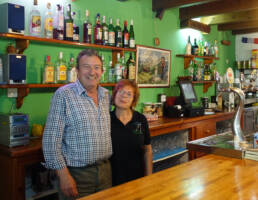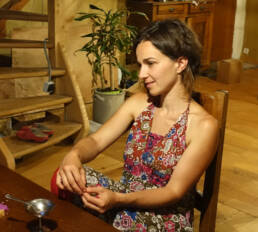Context is king. To understand attitudes towards rewilding, it is not enough to simply question people on the subject. Where they live, where they come from, their education, and many other factors need to be considered.

“The bear was eating a sheep fifty metres away.” Mustà, shepherd, incomer.
Context is king. But the context is also evolving, at least in the Global North. Our attitude to animals is changing. There are new laws on animal welfare, and an increasing number of vegetarians and vegans. Intensive livestock farming is frequently criticised.
Our perception of nature is also changing. The increasing concern about the environment, biodiversity, and climate change marks a new way of seeing the world around us.
“The Nature Park’s management is somewhat at variance with the traditional ways of the mountains.” Salva, mayor, returnee.

Rewilding is just one facet of a much larger phenomenon. That’s certainly true. But is it inevitable? Is it even desirable in the context of the Pyrenees?
In Mountain People, Tales from the Pyrenees my friend Gordon Wilson and I look at the social context of rewilding. We also analyse what sustainable development might mean in a mountain context. But above all the book is a collection of personal stories told by those who live in the hills year-round: their attitudes, their hopes, and their fears.

“It will take several years of effort to reverse the idea that there are two groups. Foreigners on one side and natives on the other.” Jacques, retired beekeeper, incomer.
We interviewed fifteen Pyreneans living in Ariège, France, and in Pallars Sobirà, Catalonia. Some had never been away, some had left but returned, and some, born elsewhere, had established their home on the slopes. Natives, returnees, and incomers.
“I am one of four. All four of us were born here in the village. A grandmother from the village helped at all the births.” Josep, municipal worker, native.
Whatever their personal trajectory, in the Pyrenees, everybody has an opinion on rewilding. The reintroduction of the brown bear and the imminent arrival of the grey wolf leave no one indifferent. But, although the media image of the inhabitants is that they are ‘for’ or ‘against’ the arrival of large predators, the reality is much more nuanced.
Moreover, although they may well have an opinion on the subject, most of the inhabitants have no contact with these predators and their daily lives are unaffected. This is the context in which rewilding is happening.
The hamlet of Noarre, Pallars Sobirà

On the other hand, for most of the inhabitants, nature does indeed play a predominant role in shaping their existence. An existence constrained by the inherent difficulties of mountain life. Winters are particularly hard. That situation has been succinctly defined by the Pyrenean geographer Michel Sébastien as ‘la rupture de la pente—the break in slope’. As soon as one leaves the plains behind, the problems begin.
Some of those problems have been overcome. The isolated location of mineral veins was long a barrier to their exploitation. Until cableways were invented. Exporting industrial and farm products was constrained by poor communications. In Pallars Sobirà some roads were not metalled until the 1960s. Mains electricity didn’t arrive there until 1975.
Other problems are still current. High-speed Internet is still a dream.

“There is almost no advantage to living here. You live here because you like it.” Pepo, businessman, incomer.
And some problems can never be solved. Farming is more dangerous when your tractor may topple over because of the slope. Schools, hospitals, universities, and public services are in far-away towns. (It is incorrect to say that Pyrenean villages are remote. That is an urban way of looking at it. No, if your live there, it is the towns that are remote.)
Living is like climbing a mountain. We argue that the locals are clinging to the hope of a better view from the top to help them through their present situation. Active hope overcoming fatalism.
So why do people stay, return, or move in? It seems to be a question of identity. Long-term residents have a commitment to the community. They identify with the locality.
“I hope the Pyrenees don’t become a weekend theme park for Toulouse residents.” Adeline, market gardener, incomer.

This is the context in which rewilding will either thrive or fail. Currently, although bears are present in increasing numbers, they are not a source of unblemished pride to the Pyrenean community. Indeed, many people reject their existence.
For those who want rewilding to be accepted, I would argue that it is not merely a question of reducing predation and keeping sheep safe. No, for rewilding to succeed, bears need once again to become part of the Pyrenean identity.
Mountain People, Tales from the Pyrenees by Gordon Wilson & Steve Cracknell, published by Austin Macauley, 26 April 2024.


